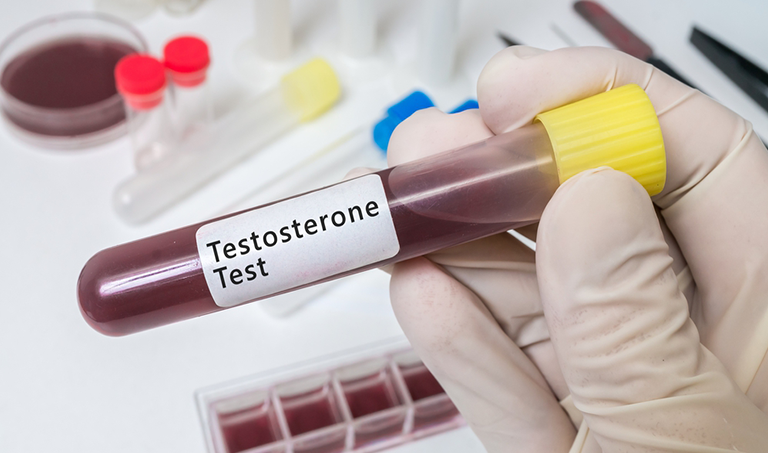Testosterone is often associated with masculinity, and while it does play a role in physical and sexual characteristics, its significance goes beyond that. It’s a hormone that influences a man’s health and well-being. Let us see what constitutes normal testosterone levels in men, why they are crucial, and how to maintain them for optimal health.
Factors Affecting Testosterone Levels
Age and Testosterone Levels: The relationship between age and testosterone levels is a well-established one. During adolescence and early adulthood, testosterone production is at its peak. This hormone is responsible for developing secondary sexual characteristics like facial hair, deepening voice, and muscle growth. However, as men age, usually starting in their late 20s or early 30s, testosterone levels gradually decline. This age-related decline can lead to various physical and emotional changes.
Lifestyle Choices: Lifestyle choices have a profound impact on testosterone levels. A sedentary lifestyle, characterized by a lack of physical activity, can contribute to lower testosterone production. On the other hand, regular exercise, especially resistance training, can help boost testosterone levels. Maintaining a healthy weight through proper diet and exercise is crucial, as obesity is associated with lower testosterone levels.
Diet and Nutrition: What you eat can significantly influence your hormone levels. Nutrients like zinc and vitamin D are essential for healthy testosterone production. Zinc, found in foods like oysters, beef, and beans, is a key component of the enzymes that convert cholesterol into testosterone. Vitamin D, obtained from sunlight and certain foods, also plays a role in testosterone synthesis.
Sleep and Stress: Quality sleep and stress management are often overlooked but are vital for hormonal balance. Sleep is the body’s natural way of restoring and regulating hormone levels, including testosterone. Chronic stress, on the other hand, can lead to increased cortisol production, which can interfere with testosterone production.
Chronic Illness and Medications: Chronic illnesses like diabetes and chronic kidney disease can affect the body’s ability to produce testosterone. In such cases, managing the underlying health condition is essential. Additionally, some medications, such as corticosteroids and opioids, can suppress testosterone production. If you suspect your medication impacts your testosterone levels, consult your healthcare provider for alternatives or adjustments.
Testosterone and Mental Health: Testosterone doesn’t just affect physical characteristics; it also plays a role in mental health. Low testosterone levels can lead to mood swings, irritability, and depression. Ensuring testosterone levels are within the normal range can improve emotional well-being.
Maintaining Healthy Testosterone Levels
Maintaining healthy testosterone levels is crucial for overall well-being. In this section, we will explore key strategies to help you keep your testosterone levels within a healthy range:
Regular Exercise: Physical activity plays a significant role in testosterone levels. Regular exercise, particularly strength and high-intensity interval training (HIIT) can boost testosterone production. Exercise not only stimulates hormone production but also contributes to improved overall health. It helps with weight management, muscle development, and bone density, all of which can positively influence testosterone levels.
Balanced Diet: Dietary choices are fundamental for maintaining healthy testosterone levels. A balanced diet that includes nutrients like zinc, vitamin D, and healthy fats is essential. These nutrients directly support testosterone production. Foods rich in zinc, such as lean meats, nuts, seeds, and legumes, aid in the enzymatic processes that convert cholesterol into testosterone. Vitamin D, sourced from sunlight and specific foods, also plays a crucial role in testosterone synthesis. Including leafy greens, fatty fish, and fortified dairy products in your diet can help ensure you get an adequate intake of these nutrients.
Weight Management: Maintaining a healthy weight is paramount, as obesity is linked to lower testosterone levels. Excess body fat, particularly around the abdomen, can increase estrogen production, further suppressing testosterone. A combination of a balanced diet and regular exercise is a proven strategy for achieving and sustaining a healthy weight. Weight loss, when necessary, can substantially impact hormone balance.
Stress Reduction: Implementing stress-reduction techniques such as meditation, deep breathing exercises, and mindfulness practices can help lower cortisol levels, the primary stress hormone. Lowering cortisol can create a more favorable environment for healthy testosterone production. By managing stress effectively, you support your hormone balance and enhance your overall mental and emotional well-being.
Sleep Hygiene: Quality sleep is essential for hormonal regulation, including testosterone. Aim for 7-9 hours of uninterrupted sleep each night to support optimal hormone balance. Poor sleep habits, such as insufficient sleep duration or interrupted sleep patterns, can disrupt the natural hormonal rhythms in your body. By prioritizing sleep hygiene and ensuring you get enough rest, you can help maintain healthy testosterone levels.
Medical Evaluation: If you experience symptoms of low testosterone or suspect an underlying medical condition, it is crucial to consult a healthcare provider. They can perform blood tests to assess your hormone levels and recommend appropriate treatments or interventions. Identifying and addressing potential underlying health issues is essential for restoring and maintaining healthy testosterone levels.
Renew Your Vitality with Hormone Replacement Therapy
At Optimal Health, we specialize in Hormone Replacement Therapy designed to help you live your best life. Our dedicated team of experts understands hormones’ profound impact on your health. We offer personalized Hormone Replacement Therapy that caters to your unique needs, aiming to restore your energy, mood, and overall quality of life.
Whether you’re grappling with the signs of low testosterone or simply seeking to optimize your hormone levels, our Hormone Replacement Therapy empowers you to reclaim your health and vitality. Our dedicated team of professionals is committed to guiding you through each step of the process, ensuring a tailored approach that caters to your unique needs. With the latest advancements in medical technology at our fingertips, we strive to provide you with holistic solutions, restoring balance and promoting overall well-being.

